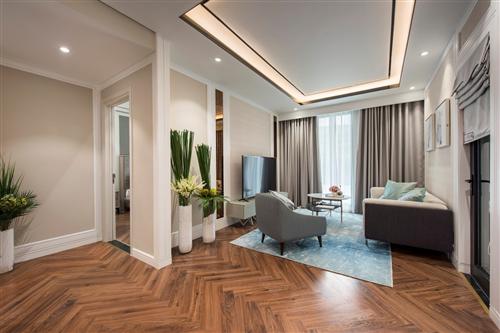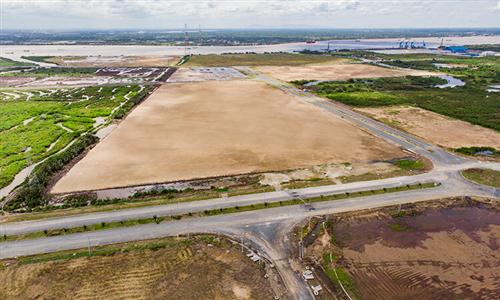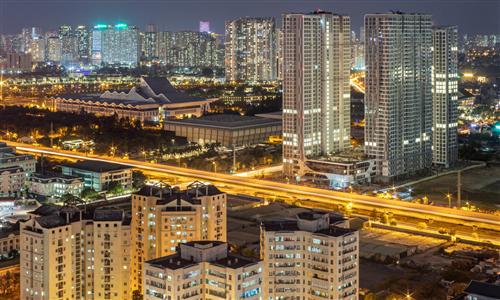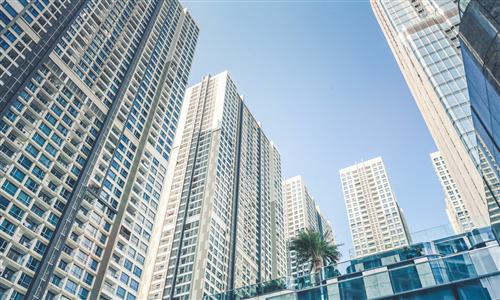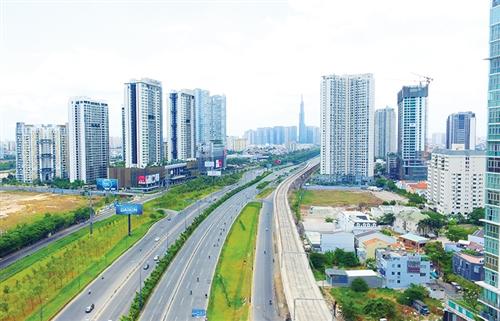Relax foreign ownership restrictions, real estate developers propose
Relax foreign ownership restrictions, real estate developers propose
Real estate developers are proposing that Vietnam eases existing limits on foreign ownership to facilitate investment and reduce inventory of premium apartments.
Apartment buildings seen in District 2, Ho Chi Minh City. Photo by Shutterstock/Zapp2Photo.
|
The foreign ownership cap of 30 percent in an apartment project limits developers' ability to meet rising demand from foreigners, the Vietnam Association of Realtors (VARS) says.
Many foreigners are interested in premium projects in Hanoi and Ho Chi Minh City, which are most often too expensive for domestic residents, it says.
The unsold inventory in this segment has been increasing in recent years and more ownership room for foreigners will help reduce it, the association adds.
Vietnam allows foreigners to buy property, except land, but not more than 30 percent of a residential quarter or an apartment project, as long as the project is not located in areas deemed vital to national security.
As the country attracts rising foreign direct investment, which reached a decade-high $38 billion last year, industry insiders say there is rising demand among expats to own property in Hanoi and Ho Chi Minh City.
Su Ngoc Khuong, senior director of real estate service firm Savills Vietnam, said that there was large demand from workers of South Korean and Japanese companies that invest in Vietnam, and of the Vietnamese diaspora in Europe and the U.S.
Many apartment projects in District 2, HCMC have reached the 30 percent foreign ownership cap, he said.
"Expats who have long-term projects in Vietnam and those with Vietnamese spouses prefer buying a house to renting, while the Vietnamese diaspora with money consider property in their home country an investment," Khuong said.
Industry insiders say that a premium apartment in HCMC typically costs 20-30 percent less than Hong Kong and Singapore. Foreign investors see Vietnam as one of the fastest-growing economies in the region with potential for development in various sectors including manufacturing and tourism.
"As Vietnam seeks more foreign direct investment, it should give high-skilled foreign laborers more opportunity to own property," Khuong said.
But the ownership cap is limiting developers in making this happen, said Han Suk Jung, CEO of HCMC-based SonKim Land.
He said that the 30 percent ratio makes it challenging for the company to meet foreigners’ demand, which has been rising in recent years. He proposed that the ratio be increased to 49 percent.
Since the latest foreign ownership law took effect in July 2015, just 800 foreign individuals and companies had registered ownership of properties in the country as of November last year, according to a National Assembly report.
Although there are concerns that more foreign ownership means less opportunities for local residents to own property, Tran Minh Hoang, deputy director of VARS, said that Vietnamese and foreigners have different real estate interests.
Most Vietnamese look for affordable real estate, while foreigners are more into the premium and luxury segment, he said.
Vietnam is seeing an oversupply in the premium segment. A recent report by the Ministry of Construction says that although up to 80 percent of buyers’ demand is for affordable property, there is a shortage of supply in this segment, while there is an oversupply of premium properties.
The report also estimates unsold real estate inventory nationwide, dominated by the high-end segment, at VND104 trillion ($4.4 billion).
"Selling property to foreigners does not mean that there will be less asset for locals. They are different groups of customers," Hoang said.
Other industry insiders said that as foreigners are already buying property via proxies, an increase in the cap will help increase transparency in the market.
Meanwhile, some industry insiders have also expressed need for caution with the proposal to allow increased foreign ownership.
A senior leader of the Ho Chi Minh City Real Estate Association (HoREA), who asked not to be identified, said that there could be national security implications if there were too many foreigners living in an apartment project.
Furthermore, too much investment in the premium segment can take away capital from the affordable segment that’s much needed for Vietnamese citizens, he said.






